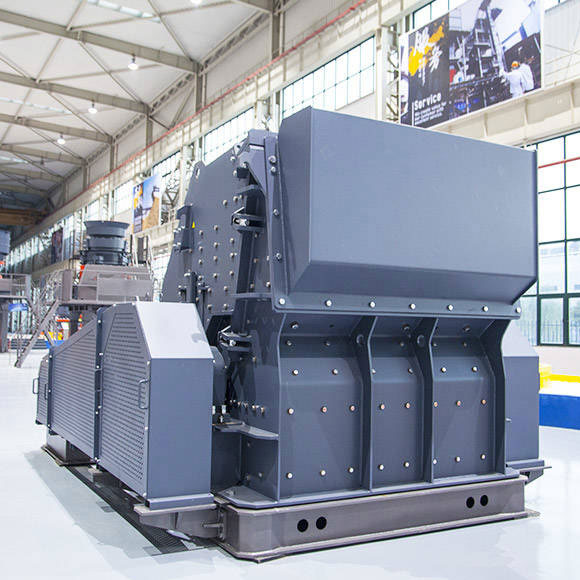An impact crusher is a crucial component in the production of construction aggregates, playing a key role in breaking down larger rocks into smaller, more manageable pieces. Construction aggregates, which include materials such as gravel, sand, and crushed stone, are essential in the construction industry for creating roads, buildings, and various infrastructure projects. The impact crusher is designed to efficiently and effectively reduce the size of raw materials, providing a valuable tool in the aggregate production process.

Principle of Operation:
An impact crusher works by feeding the material into a chamber that contains a spinning rotor with hammers or blow bars. As the rotor rotates, the hammers strike the material, breaking it into smaller pieces. The impact force generated by the hammers or blow bars can be adjusted to control the size of the final product.
Size Reduction and Versatility:
Impact crushers are versatile machines capable of handling various types of materials, from soft to hard rocks. They are particularly effective in processing materials with high abrasiveness. The ability to adjust the impact force and rotor speed allows for precise control over the size and shape of the final product.
Efficiency in Aggregate Production:
The primary goal of an impact crusher in aggregate production is to create smaller particles that can be used in construction. By breaking down larger rocks, the crusher facilitates the production of aggregates with the desired specifications. This efficiency is crucial for meeting the stringent standards and requirements set by the construction industry.
Reduction of Environmental Impact:
Using impact crushers in aggregate production can contribute to environmental sustainability. By reducing the need for extensive mining and excavation of new materials, crushers help minimize the environmental impact associated with these activities. Additionally, the ability to produce specific sizes of aggregates minimizes waste and optimizes resource utilization.
Cost-Effective Solution:
Impact crushers offer a cost-effective solution for aggregate production. Their robust design and efficient operation contribute to lower maintenance costs and downtime. The versatility of these machines also means they can handle a variety of materials, reducing the need for multiple types of crushers in a processing plant.
Application in Recycling:
Impact crushers are also valuable in recycling applications, where they can be used to process concrete and asphalt debris. By recycling these materials, impact crushers contribute to sustainable construction practices, reducing the demand for new raw materials and minimizing waste.
Technology Advancements:
Ongoing technological advancements have further improved the performance of impact crushers. Modern designs incorporate features such as advanced crushing chambers, adjustable settings, and sophisticated monitoring systems. These innovations enhance the overall efficiency and reliability of impact crushers in aggregate production.
Impact crushers play a pivotal role in construction aggregate production by efficiently breaking down larger rocks into smaller, usable materials. Their versatility, efficiency, and cost-effectiveness make them essential components in the aggregate processing industry. As technology continues to advance, impact crushers are likely to evolve, further contributing to sustainable and efficient construction practices.
